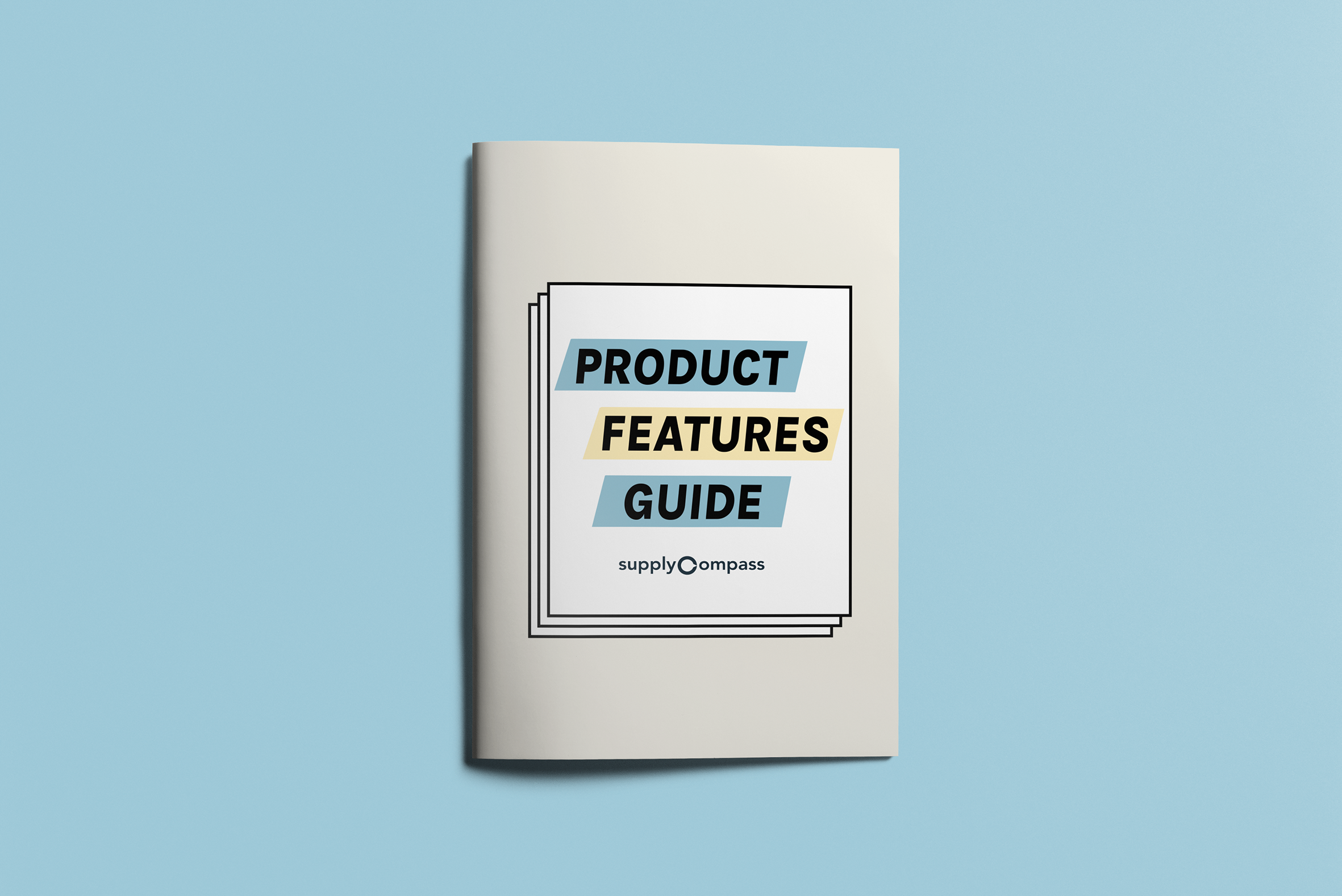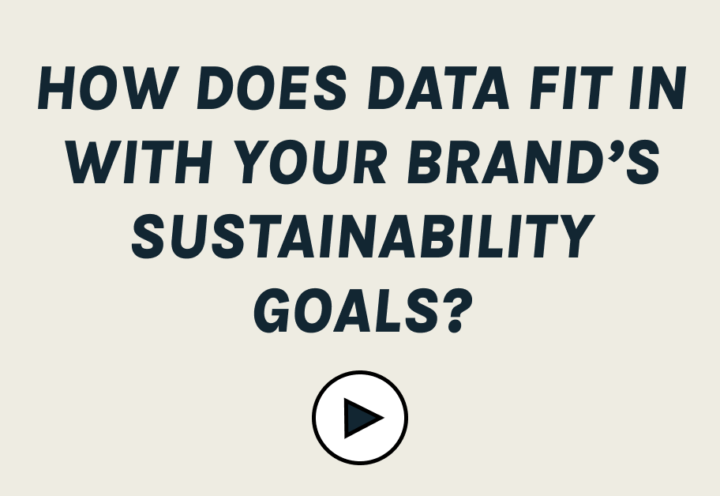Tech Talks with Compare Ethics
6 mins Nov 11
All imagery provided by Compare Ethics
SupplyCompass speaks to Abbie Morris, Founder of Compare Ethics. Compare Ethics is the platform that builds trust and transparency through sustainable product verification. They turn sustainable product data into increased revenues via their verification technology and product impact measurements.
We are delighted to announce our partnership with Compare Ethics, the leading platform that connects citizens with products that are authentically ethical and sustainable. Through the use of machine learning and verification technology, Compare Ethics enables companies to substantiate their claims, build trust and scale their commitments for long term growth. Our partnership embraces the synergies of both organisations in a bid to bring transparency and change to the industry through technology and stakeholder collaboration with the brands we work with.
Tech Talks is SupplyCompass’ content series spotlighting software and technology companies at the forefront of cutting-edge innovation, through the lens of fashion and supply chains. A must-read for fast-growing, ambitious fashion brands looking to invest in digital transformation.
Tell us more about Compare Ethics.
At the core of the platform, our algorithms use third-party data sources and machine learning to identify and assess a product’s responsible status. The technology assesses products across ten categories, spanning supply chains, circular economy, certifications and more. The algorithm is based on over 10 years of research and in collaboration with Imperial College London. Through this technology, Compare Ethics provides each product with an impact measurement that can be placed on a brands e-commerce product pages - this increases conversion rates up to 69%, giving brands a better return for being better. For consumers, we act as a trusted source of information on responsible brands, so that they can shop with confidence.
What are the subscription services that Compare Ethics offer?
In an age where greenwashing is rife within fashion, Compare Ethics was created to support sustainable brands through responsible product verification, designed to increase trust and brand loyalty. I would describe the Compare Ethics subscription as a ‘Trustpilot for responsible fashion brands’. There are two core Compare Ethics services included:
Impact widget – Sitting on a brands website; this product converts visitors into customers, through customisable engaging content, whilst harnessing the power of third-party verification.
Platform – Brands are able to increase their exposure to an ethical customer market segment by being listed on the Compare Ethics shoppable platform.

What are the benefits for brands for using Compare Ethics product offering?
The Compare Ethics subscription is designed to grow sales through increased trust and brand loyalty. In a crowded e-commerce space, sustainable fashion brands need to find ways to differentiate themselves from the rest. By ensuring that information is authentic and your claims are transparent, the subscription allows you to take your customer on a sustainability journey. With a proven uplift of up to 69% in conversion rates of online sales, many of our brands are already seeing the benefit in third party verification through Compare Ethics.
To increase brand awareness, each brand that works with us receives a bespoke marketing package, tailored to their performance objectives. They receive exposure through content, online channels, campaign activations and events as well as the ability to reach over 20,000 consumers a month.
How does Compare Ethics create its sustainability scores? What is the methodology behind the Compare Ethics verification process?
The sustainability scores look to empower shoppers to make informed decisions when purchasing items. To calculate the total product impact, an algorithm is used to determine how the specific item has performed, in line with the ten key verification attributes.

This algorithm was developed in collaboration with Imperial College London and actively implements the Advertising Standards Authority Green Claims Code, to ensure all marketing of sustainability claims are compliant with government regulation.
By having a robust set of evaluation categories, we reward brands for their progress in multiple areas. The categories are assigned different weightings according to their value, for example, circular economy ranks higher than pledges. The rationale for this is that circular systems are critical to environmental management, whereas pledges are voluntary sustainability commitments.
To complement our own evaluation criteria, the verification process authenticates third-party certifications and assesses supporting evidence such as payslips, invoices and video documentation that prove living wages, high standards of working conditions and environmental commitments.
The scoring system which weights the ten categories indicates where each product sits on the scale and how it compares to the industry average. In order to receive the Compare Ethics trust seal, a product must meet at least 40% of the 10 categories during the assessment. The industry average garment scores 20% on the Compare Ethics scale.
Verified products are able to achieve either:

How does Compare Ethics communicate this information to a brand’s customers?
The Compare Ethics impact widget displays up to 3 sustainable impacts, in an easily digestible format that uses common metrics to convey sustainable information. This can be tailored to the specific priorities of your business; whether that is charity donations, living wages or saving surplus materials from going to landfill.

On the Compare Ethics own platform, a brand’s sustainability claims are conveyed in one click, where shoppers are able to see exactly what has been verified by the Compare Ethics technology.
Sharing this information directly with the customer allows brands to stand out in a noisy marketplace where greenwashing is rife by adding substance to their claims. It also works as an important education piece to the sustainably engaged shopper, who may be time poor but eager to ensure that their next purchase is aligned to their ethical values.
What information do consumers look to verify and value most?
Sustainability means something different to each individual shopper and everyone has their own priorities; whether that is emissions reduction, fair living wages and working conditions or being void of animal derivatives. Our research has found that nearly 3 in 4 customers would assume that a product comes from sustainable sources if it was labelled ‘sustainable’. Many shoppers also associate a ‘sustainable’ description claim to mean that the product has a low eco-impact, is recyclable or is Fairtrade.
The user data on the Compare Ethics platform shows that customers are in search of products that have low chemical use, donate profits to charity, focus on emissions reduction and are made locally.
It should be noted, however, that the most frequently searched tags are not in direct correlation to their environmental or social impact, which is why our scientific ranking system is important.

How is Compare Ethics working to develop and maintain the integrity of its sustainability metrics?
We recognise that achieving sustainability is a constant journey. For this reason, we regularly update our product verification methodology to incorporate integral new themes that arise across the environmental, social and governance landscape. We consider policy developments and industry innovations as well as qualitative and quantitative data sets, to evolve our framework.
To continuously engage stakeholders and encourage collaboration on sustainability, Compare Ethics conducts published research. We have recently authored an inaugural report, that shares how organisations can build consumer trust in sustainability claims. The research revealed that less than one-fifth of shopper’s trust brands’ ethical statements. The data revealed that for those who only identify with shopping from sustainable brands 10% or less of the time, a significant 80% still would want to seek third-party verification. The report, which has been featured in the likes of WWD, City AM, Fashion United and Investor Ideas, reinforces the need for agreed industry standards and consistency surrounding sustainability messaging if consumers are to trust brands and product claims. The team is dedicated to using these insights to create value for its partners.
Complementing this, in order to maintain the level of integrity of brands joining the Compare Ethics platform, we will continue to develop a robust and thorough approach to the verification process, that is peer-reviewed bi-annually by industry experts.
What does the future look like for Compare Ethics and for the growth plan for your platform?
As the paradigm continues to shift towards sustainability across industries, the future for Compare Ethics looks extremely bright. Citizens are increasingly wanting to align their spending to their values and are equally inquisitive about the validity of environmental and social statements. We are looking to expand into essential consumer goods markets such as beauty, jewellery and lifestyle items to bridge the gap between claims and data whilst bringing transparency to the shopping and retail experience. Through our unique data insights, we are expanding our impact advisory services to help brands elevate their sustainability performance.
To find out more about how Compare Ethics can help you to provide a platform and build trust in sustainability, drop us a line
Nayanika is a designer, writer and illustrator whose work spans research, storytelling and strategy for sustainability in fashion. Her interests specifically lie in sustainable supply chains, craft production/innovation, circular economies and design for social innovation. She graduated from the prestigious MA Fashion Futures program at London College of Fashion with a Distinction in 2019, and has researched at and written for Centre for Sustainable Fashion and Fashion Revolution, amongst others.
More on our blog
We’ve launched our comprehensive Product Features Guide!
We’ve just launched The SupplyCompass Product Features Guide. We break down all our 95+ features and sub-features, explaining how you can use them and what makes them tick—so you can understand how SupplyCompass can help SME fashion brands like you.
Right Thing #5 - The name of the game is Agility
In agility, there’s a real emphasis on co-creation, on a cycle of continuous improvement, production and distribution with regular reflections on how to be better by constant fine-tuning and adjusting. Brands and supply chains being agile will, no doubt, be the most successful — and sustainable — organisations of the future.
Here’s how tech enables sustainability
What’s the first thing that comes to mind when you think of sustainability? Data is rarely the answer. Watch/Listen to Co-Founder and Head of Product Flora Davidson explain how technology can enable brands to embed sustainability principles into their business.
Get started with our platform
Read the Right Thing
Subscribe to join sustainability nerds, production gurus and thought leaders from companies like Ganni, Adidas, AllBirds and Finisterre & become part of the 10,000+ community who get The Right Thing—a fortnightly letter straight from our Co-Founder’s desk.



